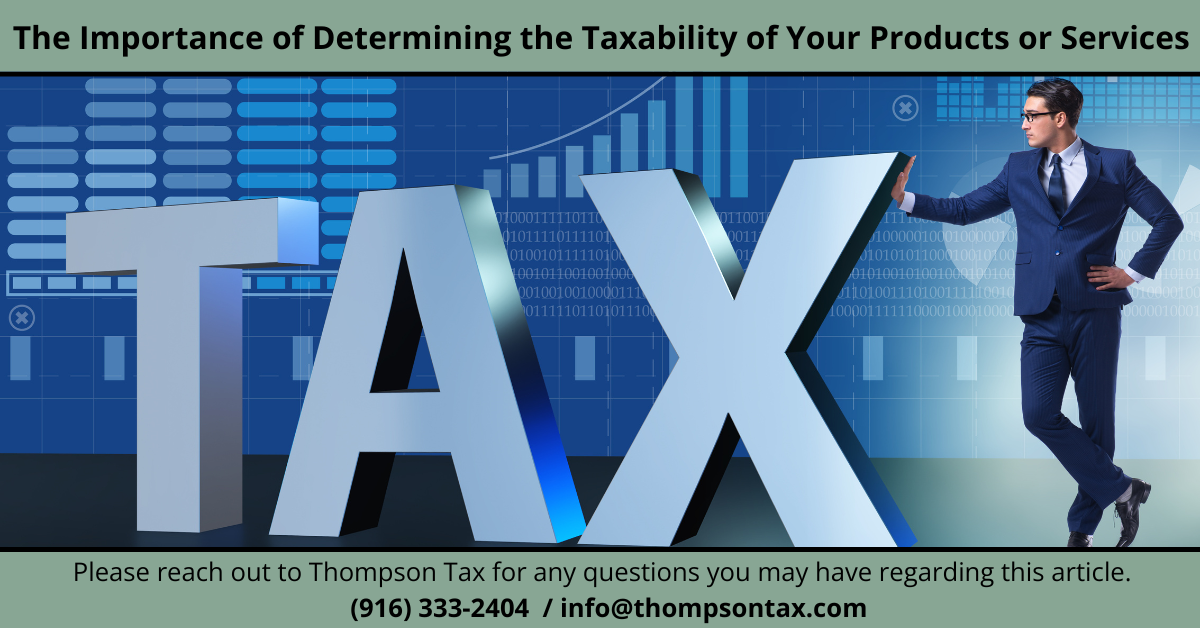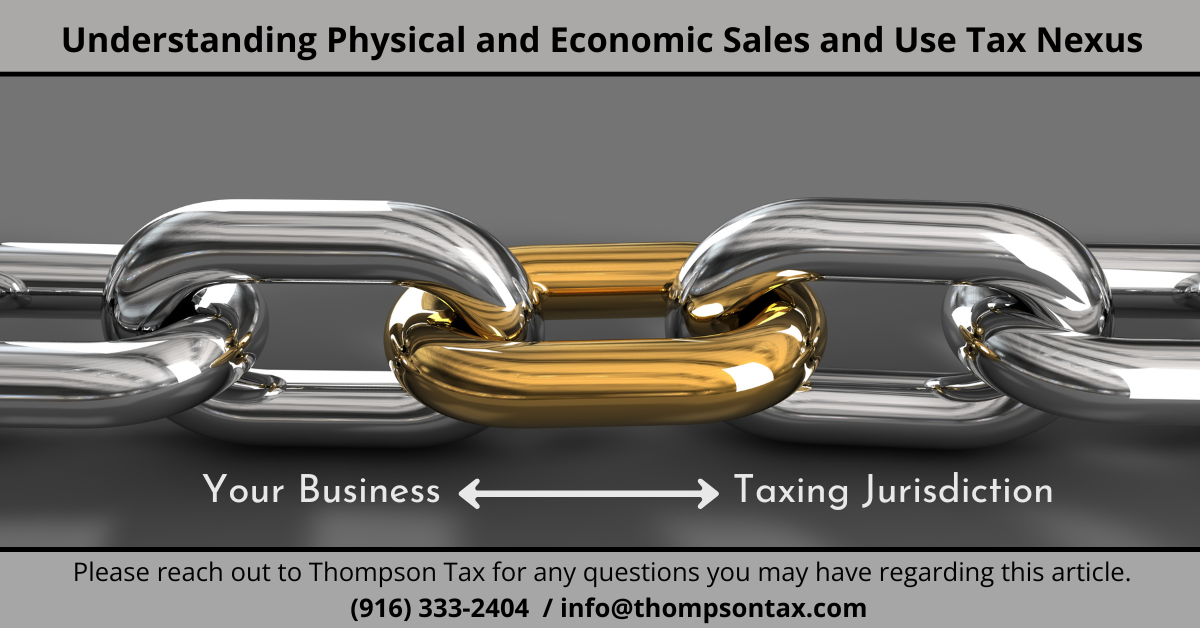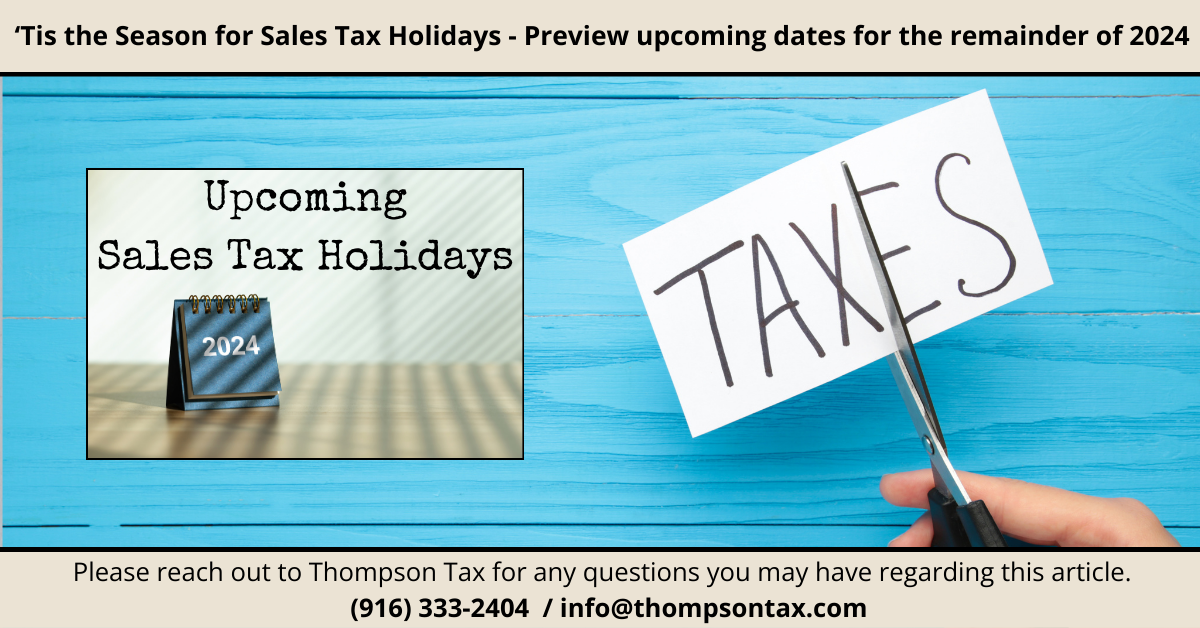The Importance of Determining the Taxability of Your Products or Services

Tax compliance significantly affects your business’s financial health and customer relationships. Understanding the taxability of your products or services is essential for smooth business operations. Here’s why accurately determining the taxability of your offerings is vital to your business’s success.
Legal Compliance and Avoidance of Penalties
- Adhering to Regulations: Each state and country has specific tax laws that dictate which products and services are taxable. Failure to comply with these laws can result in significant penalties, fines, and interest on unpaid taxes. By determining the taxability of your offerings, you ensure that your business complies with all applicable tax regulations.
- Avoiding Legal Disputes: Incorrectly charging or failing to charge sales tax can lead to legal disputes with tax authorities. These disputes can be time-consuming and costly and have the potential to harm your business’s reputation and operations. Properly determining taxability helps avoid these legal complications.
Financial Health and Cash Flow Management
- Accurate Pricing: Understanding the taxability of your products or services allows you to set accurate prices that include the appropriate tax amounts. This ensures that your pricing strategy is transparent and aligns with your financial goals.
- Preventing Unplanned Expenses: If you fail to collect the correct sales tax amount from customers, your business may have to cover the shortfall. This can lead to unexpected expenses and a negative impact on your cash flow. Proper taxability determination helps you collect the right amount upfront, avoiding financial surprises.
Customer Relations and Trust
- Transparency with Customers: Customers expect pricing transparency, including applicable taxes. Accurately determining and displaying tax amounts builds trust with your customers, as they can see that your business is honest and compliant with tax laws.
- Avoiding Customer Disputes: Incorrectly charging sales tax can lead to customer dissatisfaction and disputes. Customers may challenge incorrect tax charges, leading to refunds, additional administrative work, and potential loss of business. Proper taxability determination helps maintain positive customer relationships.
Competitive Advantage
- Enhanced Reputation: Businesses that demonstrate a strong understanding of tax compliance are viewed as reliable and professional. This can enhance your reputation in the marketplace, attracting more customers and partners who value compliance and transparency.
- Market Expansion: Understanding taxability is crucial when expanding into new markets. Different states and countries have varying tax laws; being well-versed in these regulations allows your business to expand confidently and compliantly.
Efficient Business Operations
- Streamlined Accounting Processes: Knowing the taxability of your products or services simplifies your accounting processes. It allows for accurate record-keeping and easier reconciliation of tax amounts collected and remitted, leading to more efficient financial management.
- Leveraging Technology: Many businesses use tax compliance software to automate tax calculations and ensure accuracy. These tools require accurate taxability information to function correctly, highlighting the importance of determining taxability for seamless integration with technology solutions.
Steps to Determine Taxability
- Research Tax Laws: Research the tax laws in the jurisdictions where you operate. This includes understanding the definitions of taxable goods and services and any applicable exemptions.
- Consult Tax Professionals: Engage tax professionals or consultants who specialize in sales tax compliance. They can provide valuable insights and help navigate the complexities of tax laws.
- Implement Tax Compliance Software: Invest in tax compliance software that can automate the process of determining taxability and calculating the appropriate tax amounts. These tools are especially useful for businesses operating in multiple jurisdictions.
- Regularly Review and Update: Tax laws are subject to change, so it’s essential to regularly review and update your understanding of taxability. Stay informed about legislative changes and adjust your practices accordingly.
Let Thompson Tax Help with All Your Sales and Use Tax Needs
Determining the taxability of your products or services is not just a regulatory requirement but a strategic business practice. It ensures legal compliance, financial stability, and positive customer relations. Investing time and resources into understanding taxability can safeguard your business against legal and financial risks while fostering trust and transparency with your customers. In an ever-evolving tax landscape, staying informed and proactive is key to maintaining a successful and compliant business.
Contact Thompson Tax today to see how we can help you master the taxation side of your business. We are a one-stop shop for all your sales and use tax needs and are always just a phone call away.



